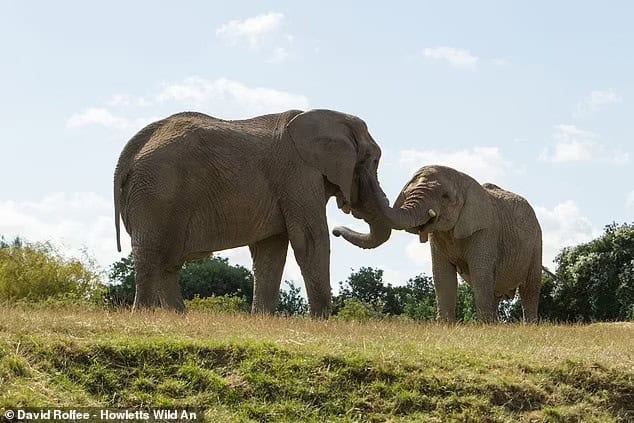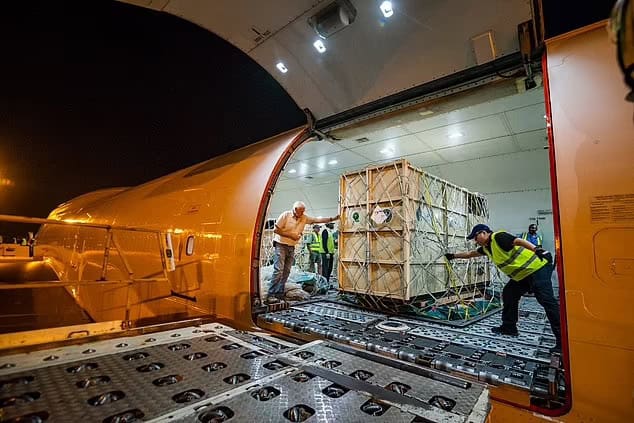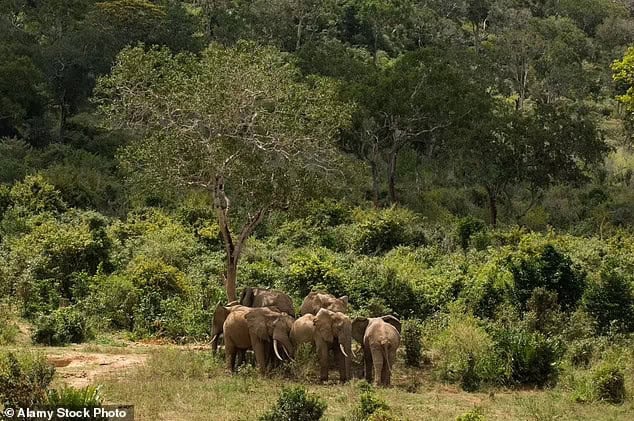In a groundbreaking rewilding effort, thirteen elephants are set to be flown from the UK to Africa. This marks the first time an entire herd of captive-born elephants will be returned to their ancestral homeland.
The elephants, ranging in age from two to 34 years, currently reside at Howletts Wild Animal Park in Kent.

Weighing 25 tons, they will make the 4,500-mile journey to Kenya aboard two Boeing 777 cargo planes.
Smaller rewilding projects involving individual elephants or pairs have been done before, but this operation, led by the Aspinall Foundation, is unprecedented.

The charity partners with Howletts and is dedicated to the idea that elephants—and all wildlife—belong in their natural habitats. They are encouraging other zoos to follow their lead.
In preparation for the move, the herd is being trained to enter custom-made crates, which will be used for the flight.
A team of vets and caretakers will travel alongside them to ensure their well-being. The elephants will be sedated but remain conscious during the eight-hour flight.

The Aspinall Foundation has a successful track record of rewilding other species from Howletts and Port Lympne, including black rhinos sent to Tanzania, Western lowland gorillas to Gabon and Congo, and clouded leopards to Cambodia.
The elephants live in an eight-acre enclosure and form one of Europe’s most successful breeding groups.
The herd includes Tammi, the 34-year-old matriarch; teens Jara and Jama; and the sociable Mchumba.
The youngest members are Oku and Nguvu, whose names mean “lake” and “powerful” in Swahili, respectively.
While the elephants receive exceptional care in captivity, the Aspinall Foundation insists that captivity is still not a suitable long-term solution for animals of their size and intelligence.
Amos Courage, director of overseas projects for the foundation, said, “We have one of the biggest herds and the best care in the world, but it’s still not enough. Elephants are too large, intelligent, and active to remain in captivity.”
The foundation is in talks with the Kenyan government to secure permits to rewild the elephants in the Golini-Mwaluganje Community Wildlife Conservancy.
This 30,000-hectare, fenced reserve in eastern Kenya is already home to various animals, including elephants, zebra, and warthogs.
The area has no large predators, allowing the elephants to adjust to their new environment in a protected enclosure before full release.
Once rewilded, conservationists and vets will closely monitor the elephants for years.
The transportation of the herd is being organized by Conservation Solutions, a South African company that helped relocate 500 elephants to Malawi in 2016.
Courage expressed his hope that the young males in the herd would eventually start their own families in the wild.
He also challenged the necessity of zoos, remarking, “You can watch animals on TV now—you don’t need to see them behind bars.”
